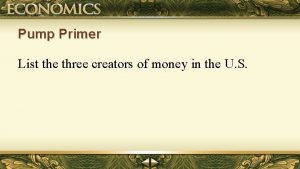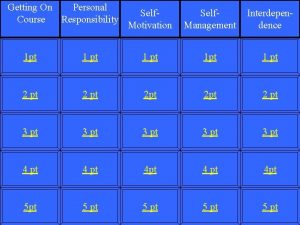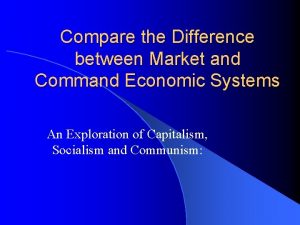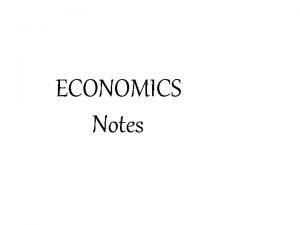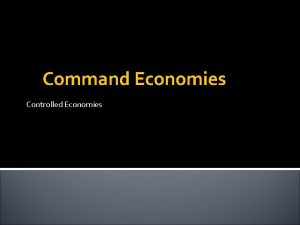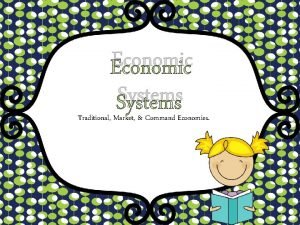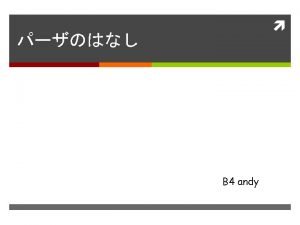Economic Philosophers Creators of Market and Command Economies








- Slides: 8

Economic Philosophers Creators of Market and Command Economies

Reasons for New Ideas • Reaction to mercantilism: tightly controlled economic system where governments heavily regulate production and trade • Exports are greater than imports to seek wealth • Dominant system in 1600 -1700 s • Government benefits, not the people

Adam Smith • disliked mercantilism because he felt that the working class was not benefitted • Developed capitalism (market system; also called free enterprise) • Author of The Wealth of Nations (1776) • “Father of Modern Economics”

Main Beliefs of Adam Smith • Laissez-faire • • economics: “hands-off”; the least government in the economy is the best government Division of labor; dividing tasks into smaller parts to increase productivity (specialization) Invisible hand: selfinterests lead to good for all; competition will naturally occur so that all are benefitted

Karl Marx • Known as “Father of • Communism” Author of the Communist Manifesto and Das Kapital • German philosopher 1818 -1883

Karl Marx Main Ideas • Believed that capitalism would fail because a division would be created between the owners (capitalists) and the workers (proletariat) • Workers would eventually overthrow the system • Developed the command economy

Karl Marx Ideas Continued • Communism: all private property has been abolished • and turned over to the state (government owns and controls all) – Goal: equitable distribution of wealth – Also called authoritative socialism Socialism: an economic system where the government owns the essential factors of production and controls how they are used (exs. Railroads, communication, utilities) – Privately owned smaller industries are usually allowed to exist – Democratic socialism (Sweden)

Problems with Marx ideas • He ignored the importance of incentives • Workers have shared in the wealth – standards of living are higher • More economic freedom means growth • Workers are protected by laws such as minimum wage and safety
 Fall creators update whats new
Fall creators update whats new Uml creators
Uml creators Who are the three creators of money in the united states?
Who are the three creators of money in the united states? Creators spend as much time as possible in quadrant
Creators spend as much time as possible in quadrant The creators of grammar answers
The creators of grammar answers Market segmentation lesson
Market segmentation lesson Similarities between market and command economy
Similarities between market and command economy Hypothetical market structure
Hypothetical market structure Is saudi arabia a command economy
Is saudi arabia a command economy


